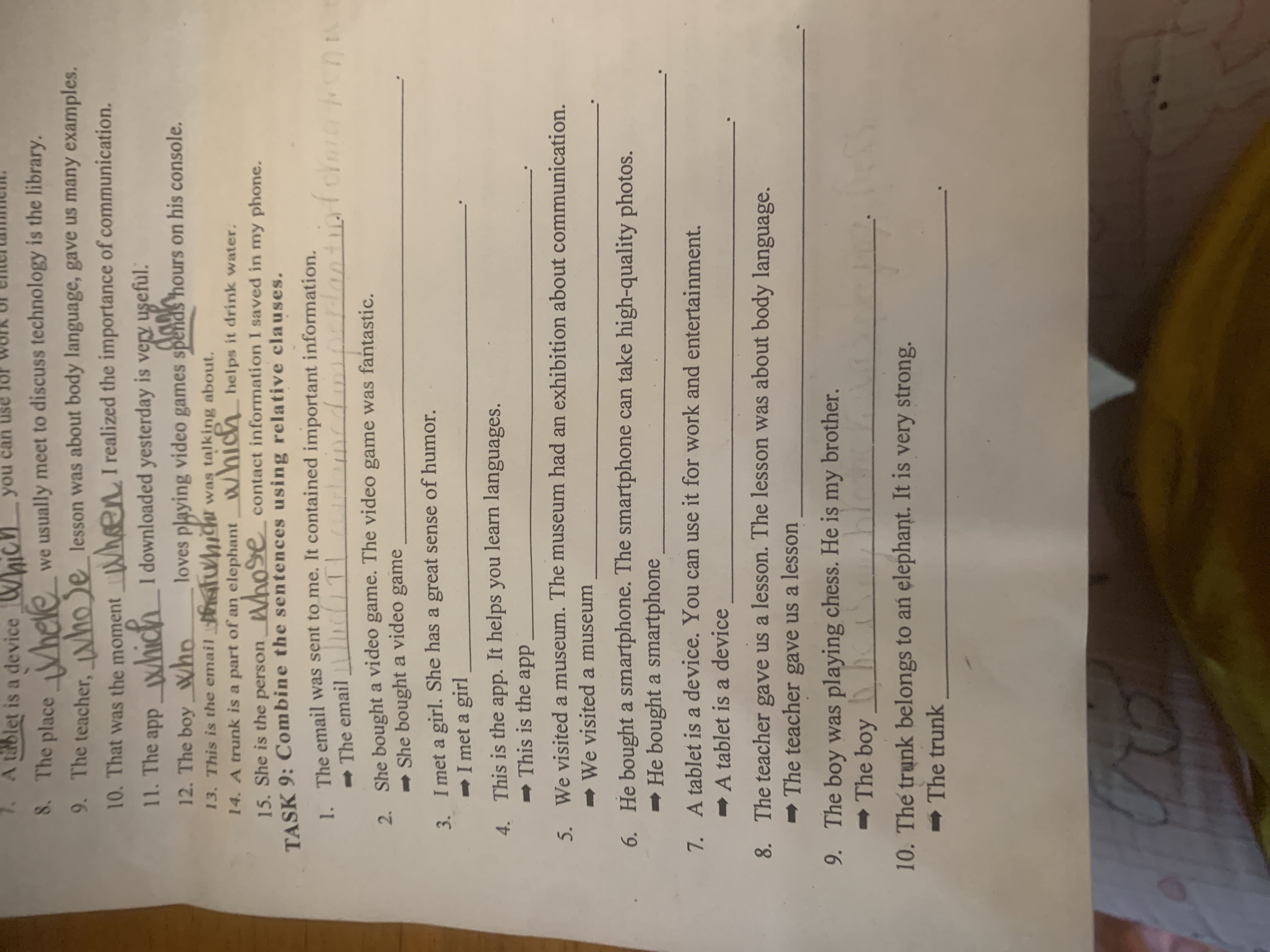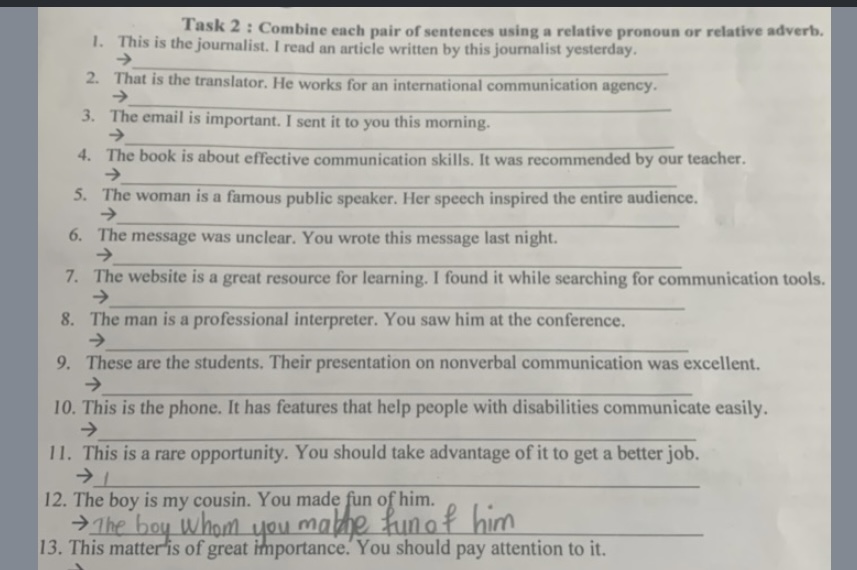Form a correct sentence. the most longer to be. working day than it used My is
Hãy nhập câu hỏi của bạn vào đây, nếu là tài khoản VIP, bạn sẽ được ưu tiên trả lời.


This book is as interesting as that one
This chair is not as comfortable as the sofa
My house is bigger than yours
This restaurant is more expensive than the one we visited yesterday
She is better than me at math
This is the smallest room in the house
This is the most interesting film I have ever watched
He is the best player on the team

1 the email that was sent to me contained important information
2 she bought a video game that was fantastic
3 i met a girl who has a great sense of humor
4 this is the app that helps you learn languages
5 we visited a museum that had an exhibition about communication
6 he bought a smartphone that can take high-quality photos
7 a tablet is a device that you can use for work and entertainment
8 the teacher gave us a lesson that was about body language
9the boy who was playing chess is my brother
10 the trunk that belongs to an elephant is very strong
1 The email which was sent to me contained important information
2 She bought a video game which was fantastic
3 I met a girl who has a great sense of humor
4 This is the app which helps you learn languages
5 We visited a museum which had an exhibition about communication

1 This is the journalist whose article I read yesterday
2 That is the translator who works for an international communication agency
3 The email which I sent to you this morning is important
4 The book which was recommended by our teacher is about effective communication skills
5 The woman whose speech inspired the entire audience is a famous public speaker
6 The message which you wrote last night was unclear
7 The website which I found while searching for communication tools is a great resource for learning
8 The man whom you saw at the conference is a professional interpreter
9 These are the students whose presentation on nonverbal communication was excellent
10 This is the phone whose features help people with disabilities communicate easily
11 This is a rare opportunity of which you should take advantage to get a better job
12 The boy of whom you made fun of is my cousin

4.Did we last call 3 years ago?
5.How many days hasn't he watered this tree?
6. When did they last practice English?

viết một đoạn văn ngắn từ 120-150 về lợi ích của việc hiểu biết các nền văn hóa khác nhau



My working day is longer than it used to be.
Em viết lại đề cho rõ nhé